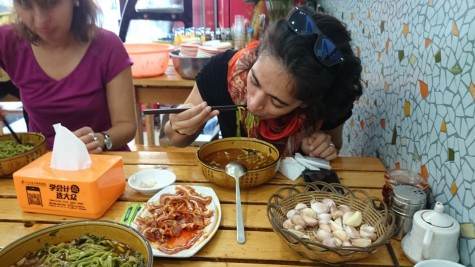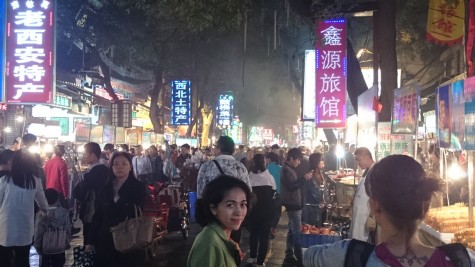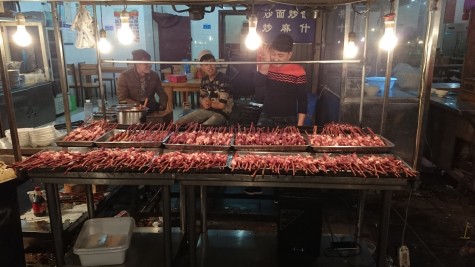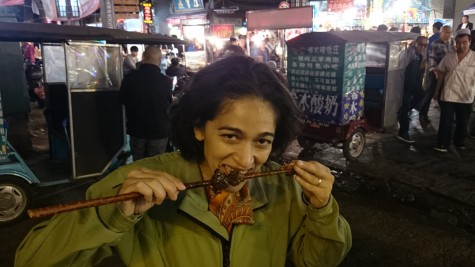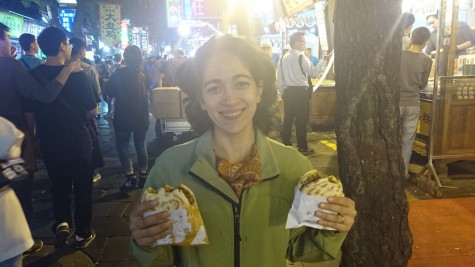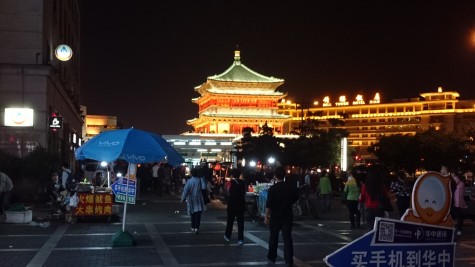 Birthplace may or may not be an exaggeration. It depends on your definition of China. Xi’an was where the first emperor of China, Qin Shihuangdi, established his capital. So in that respect, it is the birthplace of China. If you think China began in 1949, then Beijing is the birthplace. If you think it began two million years ago, then the cave where they found Peking Man is the capital.
Birthplace may or may not be an exaggeration. It depends on your definition of China. Xi’an was where the first emperor of China, Qin Shihuangdi, established his capital. So in that respect, it is the birthplace of China. If you think China began in 1949, then Beijing is the birthplace. If you think it began two million years ago, then the cave where they found Peking Man is the capital.
Quick aside, if you’ve ever wondered about the difference between Peking and Beijing, it’s sort of like the difference between Mt. McKinley and Denali. The lovely combination of imperialists and missionaries needed to identify things in China. So they kinda matched the sounds coming out of Chinese mouths with similar Roman alphabet letters (and, for Peking, they chose sounds coming out of the mouths of southern Chinese, who don’t live near Beijing). But of course, Beijing was never Peking. It was always Beijing. But also of course, the Chinese realized that most of the world can’t refer to China using Han characters. They needed some sort of official way of converting Chinese to Roman alphabet letters.
Enter Pinyin, or more officially Hanyu Pinyin. It was developed by the Chinese in the 1950s and is the official transliteration from Mandarin to Roman alphabet letters. Pinyin is the reason you can search for Beijing on Google. Some of the old legacy still remains, such as Peking Duck or the Beijing airport being abbreviated PEK. Just know that it’s Beijing Kao Ya (Beijing roast duck) and that, when you search for a flight to Beijing on Kayak, you’re flying to a fictitious abbreviation.
OK, so we took a train from Pingyao to Xi’an. On our shuttle from the hostel to the train was Marine. Her train departed 15 minutes after ours and we offered to wait for her at the Xi’an train station so we could find our hostels together (hers was just down the street from ours). We touched down in our rooms at about 2 PM and really wanted to eat. The hostel recommended $1.50 spinach noodles across the street. That seemed like a grand idea. Spinach noodles are literally noodles that have spinach in the dough, so they’re green.
Over lunch, Cindy asked Marine what she thought about the guy who took the Great Wall. She said it was “impolite.” Leave it to the French to have a very polite way of calling someone impolite.
Come night time, we went to the rather famous Muslim Quarter in Xi’an. It’s basically an enormous street market that becomes bright and bubbly at night. This is the home of cumin lamb skewers, meat in Chinese pita sandwiches (rou jia mo), and a host of other goodies that represent the beginning of the Silk Road. That’s a fact, by the way, Xi’an is where the Silk Road began. It ended, depending upon your definition, in Istanbul or Venice. From here through Uzbekistan, we’ll be following the Silk Road.

 Español
Español